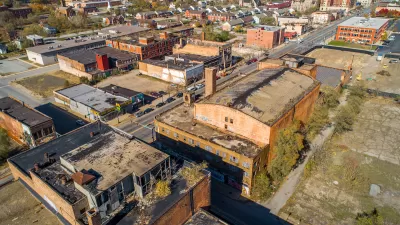The Census Bureau released its last estimates before the official 2010 count begins. They have a bearing on the Congressional reapportionment - good news for Texas, while 'less bad than expected' for the Northeast and Midwest, thanks to a recession.
Texas growth was phenomenal - adding up to more than "Arizona, California, Colorado, Florida and Nevada, combined." Another sunbelt and southwest states should remarkable slowdown, such as Nevada and Florida, largely due to a drop in domestic and foreign migration, compared to earlier in the decade.
"...in a sign of the recession's power to reshape established demographic trends, the new census figures show that growth has slowed substantially in Arizona, Georgia and North Carolina, while in Florida, Nevada and California, more Americans moved out than in.
As a corollary, the new data show that several states in the Northeast - like New York, New Jersey and Massachusetts - are holding on to more residents."
From U.S. Census press release:
"Texas gained more people than any other state between July 1, 2008, and July 1, 2009 (478,000), followed by California (381,000), North Carolina (134,000), Georgia (131,000) and Florida (114,000), according to the latest U.S. Census Bureau estimates"
From Brookings:
* "In 2007-2008, the overall U.S. migration rate reached its lowest point since World War II"
* "Migration to exurban and newer suburban counties dropped substantially, while it brought about unexpected "windfall" gains in many large urban cores."
FULL STORY: Recession Slows Population Rise Across Sun Belt

Americans May Be Stuck — But Why?
Americans are moving a lot less than they once did, and that is a problem. While Yoni Applebaum, in his highly-publicized article Stuck, gets the reasons badly wrong, it's still important to ask: why are we moving so much less than before?

Using Old Oil and Gas Wells for Green Energy Storage
Penn State researchers have found that repurposing abandoned oil and gas wells for geothermal-assisted compressed-air energy storage can boost efficiency, reduce environmental risks, and support clean energy and job transitions.

Placekeeping: Setting a New Precedent for City Planners
How a preservation-based approach to redevelopment and urban design can prevent displacement and honor legacy communities.

San Francisco’s Muni Ridership Grew in 2024
The system saw its highest ridership since before the Covid-19 pandemic, but faces a severe budget shortage in the coming year.

Colorado Lawmakers Move to Protect BRT Funding
In the face of potential federal funding cuts, CDOT leaders reasserted their commitment to planned bus rapid transit projects.

Safe Streets Funding in Jeopardy
The Trump administration is specifically targeting bike infrastructure and other road safety projects in its funding cuts.
Urban Design for Planners 1: Software Tools
This six-course series explores essential urban design concepts using open source software and equips planners with the tools they need to participate fully in the urban design process.
Planning for Universal Design
Learn the tools for implementing Universal Design in planning regulations.
Heyer Gruel & Associates PA
City of Moreno Valley
Institute for Housing and Urban Development Studies (IHS)
City of Grandview
Harvard GSD Executive Education
Salt Lake City
NYU Wagner Graduate School of Public Service
City of Cambridge, Maryland





























